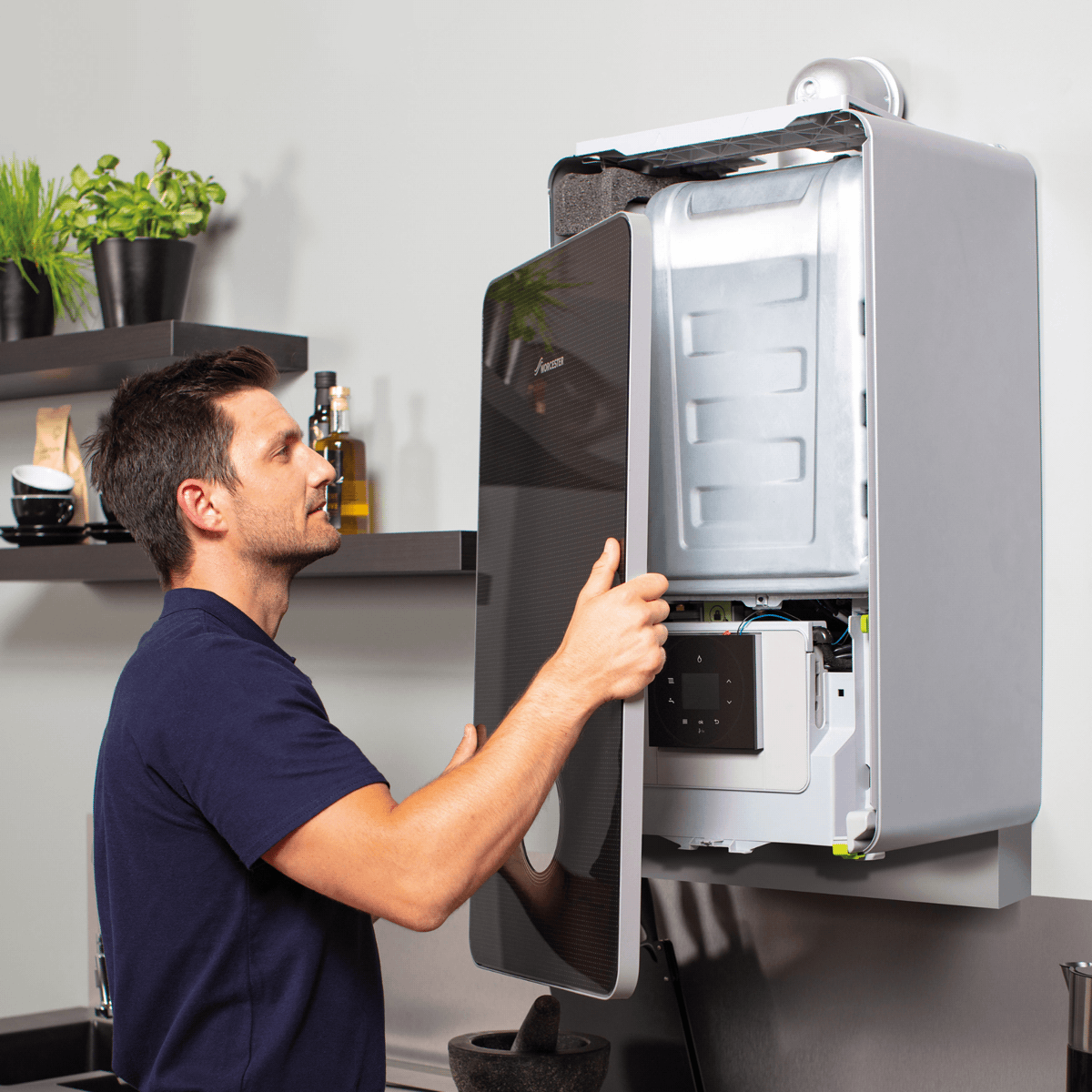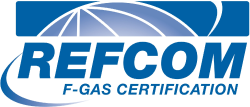Boiler leaks can be a concerning issue for homeowners in south London, impacting both comfort and safety. According to recent UK data from the Gas Safe Register, a staggering 60% of boiler breakdowns result from issues like water leaks, emphasising the importance of proactive maintenance.
In this guide, we’ll delve into the common causes of boiler leaks and provide homeowners with eight practical tips to address the issue promptly and efficiently. In addition, we will tell you what it means to enlist the help of professional boiler experts in south London to ensure efficient and lasting repairs.
At South London Heating Ltd, we are an award-winning team of boiler experts. Speak to us directly to receive expert advice and industry-leading boiler servicing. Call 0203 620 5800 or email hello@southlondonheating.co.uk today.
What are the common culprits behind boiler leaks?
1. Damaged seals
Boiler leaks often result from wear and tear on seals, which can degrade over time due to constant exposure to heat and pressure. Seals around joints and connections may develop cracks or gaps, allowing water to escape. Regularly inspecting and replacing these seals is crucial to prevent leaks and maintain the integrity of the boiler system.
2. Corrosion
Corrosion is a pervasive issue in boiler systems, particularly in regions with hard water. Over time, the metal components of the boiler, such as pipes and heat exchangers, can corrode, leading to weakened areas prone to leaks. Water treatment and installing corrosion-resistant materials can help mitigate this problem and extend the lifespan of the boiler.
3. High pressure
Excessive pressure within the boiler system can strain components and cause leaks. High pressure may result from a faulty pressure relief valve, a closed water supply valve, or a malfunctioning expansion vessel. Regularly checking and adjusting the boiler’s pressure levels within the recommended range is essential to prevent leaks caused by excessive pressure.
4. Faulty temperature and pressure relief valve
The temperature and pressure relief valve is a critical safety component. If this valve malfunctions or becomes defective, it can lead to pressure build-up within the system, potentially causing leaks. Routine testing and replacement of this valve are necessary to ensure it functions correctly and prevents overpressure scenarios.
5. Incorrect installation
Inadequate installation of the boiler system can contribute to leaks. Improper connections, loose fittings, or incorrect placement of components may result in water escaping from the system. Hiring a qualified and certified professional for the installation of the boiler is essential to avoid these issues and ensure a secure and efficient setup.
8 expert tips to address boiler leaks promptly and efficiently
1. Turn off the boiler
When faced with a boiler leak, the immediate response should be to turn off the boiler to prevent further damage and potential hazards. Shutting down the system helps mitigate the risk of water escaping and causing additional issues.
Locate the boiler’s emergency shut-off valve or switch, often situated near the unit, and deactivate it promptly. This simple yet crucial step is the first line of defence to contain the situation and avoid exacerbating the leak.
2. Check pressure levels
Maintaining optimal pressure levels within the boiler is essential to prevent leaks. High or low pressure can strain the system, leading to potential leaks or malfunctions.
Utilise the pressure gauge on the boiler to monitor and ensure that the pressure falls within the recommended range. If pressure is too high, bleeding excess air or adjusting the pressure relief valve can help restore balance.
Conversely, if pressure is too low, repressurise the system following the manufacturer’s guidelines. Regularly monitoring and adjusting pressure levels is a fundamental aspect of boiler maintenance to prevent leaks and ensure efficient operation.
3. Inspect seals and joints
The integrity of seals and joints is paramount in preventing boiler leaks. Regular inspections for signs of wear, cracks, or gaps in these components are essential.
Focus on areas where pipes connect, ensuring that seals remain intact. Replace any damaged seals promptly to maintain a watertight seal. This proactive approach not only prevents leaks but also enhances the overall efficiency of the boiler system.
Addressing seal and joint issues in their early stages can save homeowners from more extensive and costly repairs in the long run, making routine inspections a key component of responsible boiler ownership.
4. Bleed radiators
Air trapped in radiators can lead to pressure imbalances within the boiler system, potentially causing leaks. Bleeding the radiators is a simple yet effective solution to release trapped air and restore optimal pressure levels.
Begin by turning off the central heating system and allowing the radiators to cool. Using a radiator key, open the bleed valve at the top of each radiator, releasing any trapped air.
Have a container handy to catch any water that may escape during the process. Once all radiators have been bled, check the boiler pressure and adjust as needed.
This regular maintenance task promotes efficient heating and helps prevent issues like leaks caused by pressure irregularities.
5. Monitor boiler temperature
Overheating is a common cause of boiler leaks, making it crucial to monitor and control the system’s temperature. High temperatures can lead to excessive pressure, putting stress on the boiler components and potentially causing leaks.
Refer to the boiler’s manual to identify the recommended operating temperature range and ensure it is set accordingly. If the temperature is consistently exceeding these guidelines, consider adjusting the thermostat or consulting a professional technician to investigate and rectify the issue.
Regularly monitoring and regulating the boiler temperature is a proactive measure to prevent overheating-related leaks and maintain the longevity of the system.
6. Clear blocked pipes
Blocked pipes within the boiler system can impede water flow, leading to pressure imbalances and potential leaks. Regularly inspect pipes for signs of blockages, such as debris or mineral build-up. If identified, clear the blockage following the manufacturer’s guidelines or seek professional assistance.
This preventive measure not only maintains efficient water circulation within the system but also reduces the risk of leaks caused by restricted flow. Addressing blocked pipes promptly contributes to the overall health and performance of the boiler, ensuring uninterrupted heating and minimising the likelihood of leaks.
7. Investigate external factors
External factors, such as freezing weather conditions, can impact the boiler’s performance and contribute to leaks. Take preventive measures to protect the boiler during colder seasons.
Insulate exposed pipes to prevent freezing, which can lead to pipe bursts and subsequent leaks. Consider installing a frost thermostat to automatically activate the boiler and prevent freezing when temperatures drop. Additionally, ensure the boiler room or space is adequately ventilated to prevent condensation, which can also contribute to leaks over time.
By addressing external factors that can affect the boiler’s operation, homeowners can proactively minimise the risk of leaks and enhance the system’s reliability.
8. Regular professional checks
Scheduling routine inspections by a qualified technician is paramount for addressing potential issues before they escalate into significant problems. Professionals can conduct thorough assessments of the entire boiler system, identifying and rectifying issues that may lead to leaks.
From inspecting internal components to checking for gas safety issues, these regular checks provide a comprehensive overview of the boiler’s health. We’ll discuss this in more detail in the following section.
What makes professional boiler servicing important?
Professional boiler servicing is indispensable for homeowners, ensuring the optimal functionality, safety, and longevity of the heating system. Certified technicians bring expertise and experience to the table, conducting thorough inspections that encompass every facet of the boiler’s operation.
Boiler servicing involves meticulous checks on critical elements like seals, pipes, and pressure levels, pre-emptively tackling wear and tear. Regular maintenance tasks, such as cleaning and tuning, optimise the boiler’s efficiency, leading to reduced energy consumption and lower utility bills.
Moreover, gas safety certificates and checks are integral parts of professional servicing, guaranteeing compliance with regulations and assuring homeowners of a secure heating environment.
With 26 years’ experience in this field and 4000+ installations, our award-winning team will help you with efficient boiler servicing in South London. You can trust us to install high-quality boiler systems, replace your boiler if necessary, and provide service and maintenance packages, as well as repair your system with efficacy. Get your quote now!
Conclusion
Promptly addressing boiler leaks is essential for homeowners in South London. By understanding common causes and implementing preventive measures, you can mitigate risks and enhance the efficiency of your heating system.
Remember, professional boiler servicing is not just a necessity but a proactive investment in the longevity and safety of your home. South London Heating Ltd is here for you – contact us now and let us know how we can help you!





